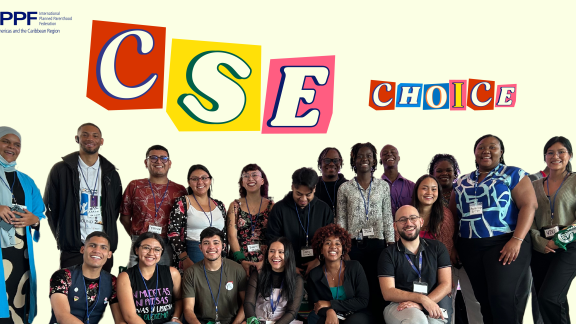In Latin America and the Caribbean, most young people lack access to high-quality comprehensive sexuality education (CSE), which deprives them of essential knowledge, skills, attitudes, and values needed for informed decision-making. This reality prevents them from accessing essential tools and knowledge necessary to realize their right to sexual and reproductive health, well-being, and dignity, and hampers their ability to foster respectful relationships.
Claudia Helena Castro Nieto is a 19-year-old from Colombia and member of IPPF's regional Youth Network and Profamilia. As a young woman in Latin America, her experience is emblematic. Reflecting on her school years, she reveals that “when students raised issues like menstruation or questions about pregnancies, the teachers remained silent. Sexual relations would only be addressed in the next religious service but but it would be addressed as a sin”.
In her ninth year of high school, as part of Claudia’s community work in High School, she began working with Profamilia, which brought her feelings of uneasiness. “The first day of training I felt uncomfortable, since it was not 'normal' to talk openly about sexuality, because in my house and at my school this topic was taboo”
As time passed and the training deepened, Claudia felt comfortable speaking and engaging. And she changed her perception, understanding for the first time that there was something called "Comprehensive Sexuality Education" and that it mattered in everyone's lives. “I fell in love with the work because at school I was not only going to study, but also to help my classmates with the information I had received”. However, as time passed and Claudia immersed herself in the work of Profamilia related to CSE, she also learned that “even if a great work is done in the delivery of CSE, there are ideological and funding barriers that hinder the access.”













